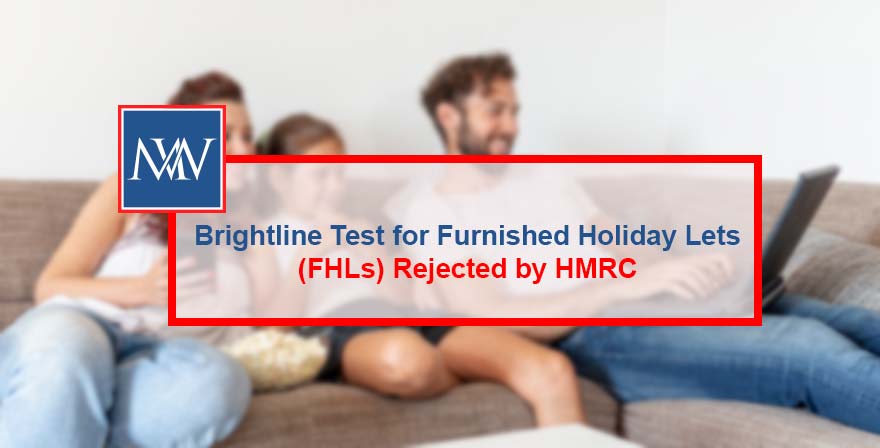
Brightline Test for Furnished Holiday Lets (FHLs) Rejected by HMRC
Landlords with furnished holiday lettings (FHLs) face an uncertain future. At the time of the Spring 2024 Budget, it was announced that the tax regime for FHLs would be abolished on April 6, 2025. However, no further details were announced before the general election was called, leaving landlords uncertain as to whether the proposals would be enacted and, if so, what they would look like.
In a letter to HMRC, the ICAEW called on the government to consider the introduction of a ‘brightline test’. This had previously been proposed by the former Office of Tax Simplification (OTS) in 2022.
Special rules for FHLs
Under the current regime for FHLs, landlords who meet occupancy and availability tests are treated more like businesses and benefit from tax reliefs that are not available to landlords letting residential accommodation on longer-term leases. Broadly, to fall within the regime, the property must be furnished and available for letting for at least 210 days in the tax year and at least 105 days. However, if the property is let for more than 155 days in the tax year on lets of 31 days or more, the property is not an FHL.
Landlords of FHLs are not subject to the interest restriction rules applying to landlords letting longer-term residential lets. Instead, they can deduct interest and finance costs in full when calculating their taxable profit. They also benefit from valuable capital gains tax business reliefs, such as business asset disposal relief, business asset rollover relief, and relief for business gifts. Profits from letting an FHL also count as earnings for pension purposes.
Proposed ‘brightline’ test
In their review of property income in 2022, the former OTS suggested the introduction of a ‘bright-line’ test to determine whether the landlord was operating a property business or a trade. The ICAEW called on the Government to consider whether this would make it easier for landlords to ascertain whether they are trading or not. Such a test would help reduce the administrative burden placed on HMRC. It would also be helpful for inheritance tax purposes in determining whether business property relief is due.
At the time of the budget, the government also announced that anti-forestalling rules would apply from March 6, 2024, to prevent the use of unconditional contracts to secure favorable capital gains tax reliefs. The ICAEW also asked for clarification on any transitional rules that might apply.
HMRC’s view
In response to the ICAEW, HMRC rejected the introduction of an objective ‘brightline’ test, preferring instead the application of the usual rules to determine whether a trade exists. In their reply, they also stated that, in their view, business property relief is unlikely to be available for furnished holiday lets, as they regard the activity as an investment activity whereby income is received in return for the occupation of the property.
For more information, Book a Free Consultation
Need Accountancy Support?
For information on bespoke training, or if you have any other questions for Makesworth Accountant, please fill in your details below
















 151
151